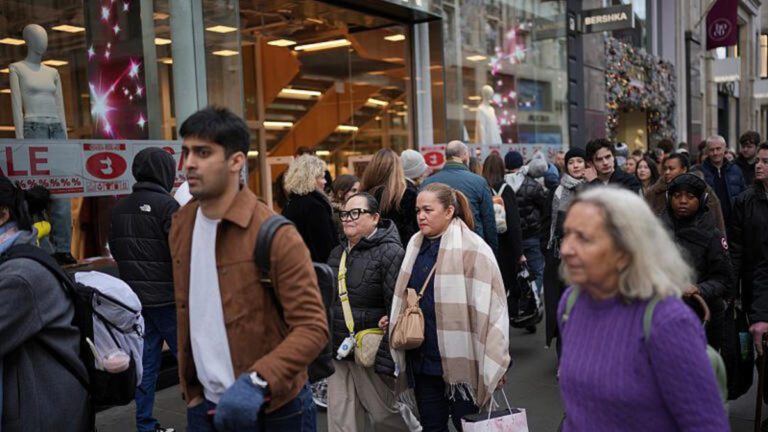🎧 Listen to This Article
When former U.S. President Donald Trump reimposed sweeping tariffs on Chinese goods in early April — including a crippling 145% levy — global trade didn’t just shift; it scrambled. One of the most immediate and unanticipated aftershocks? A rising tide of low-cost Chinese goods poised to flood European and British markets, exploiting a long-criticized import tax loophole.
At the heart of this storm lies a quiet but powerful tax relic: the “de minimis” rule, which exempts imports valued under £135 (about $178) in the UK from duties and VAT collection at the border. Initially designed for ease of processing low-value shipments, the rule has now become a backdoor entry point for mass-scale e-commerce players like Shein, Temu, and a swath of Chinese third-party sellers on Amazon.
But this isn’t just about consumer choice or cheap leggings. This is about the structural integrity of UK retail, fiscal fairness, and the very nature of global trade enforcement.
Why This Matters Now
The British Retail Consortium (BRC) and the British Independent Retailers Association (BIRA) are sounding the alarm — not as an ideological reaction to free trade, but as a practical response to fiscal distortion. Retailers fear the UK is about to become the new dumping ground for products rerouted from the U.S., where Chinese sellers now face tariff walls and the end of their own de minimis loophole.
As Helen Dickinson, CEO of the BRC, warns: “Retailers are very concerned about the risk of some lower quality goods being rerouted from the US to Europe… It will set an unfair marketplace leaving bricks and mortar stores at an even greater disadvantage.”
This isn’t speculative. It’s déjà vu. When the U.S. tightened similar policies in the 2010s (notably under Trump’s first term), Hong Kong’s exports to Canada mysteriously tripled in certain categories. Loopholes don’t disappear — they move.
The Bigger Economic Picture: Global Arbitrage at Work
Chinese e-tailers don’t just sell dresses — they optimize supply chains with surgical precision. When tariffs hit, they reroute. When duties rise, they reclassify. When thresholds like £135 exist, they repackage orders — sometimes illegally — to slide under radar.
This creates a triple injustice:
- UK Tax Revenue Loss: Billions in VAT go uncollected as imports under the de minimis limit sail in unchecked.
- Unlevel Playing Field: British retailers pay taxes, customs, business rates — while offshore sellers bypass the lot.
- Product Safety Risk: Goods entering outside the standard regulatory checks are often substandard or non-compliant.
From Trade Loophole to Policy Earthquake
If the UK fails to act, we could witness a wholesale redirection of Chinese e-commerce into Britain and the EU, further hollowing out local retail. This would:
- Distort pricing structures for discount and mid-tier retailers like Primark, B&M, and even grocery chains with general merchandise sections.
- Undermine small and independent UK shops, many already fragile after Brexit and COVID.
- Erode consumer trust in product quality and safety.
- Increase the pressure for retaliatory or emergency legislation from European trading partners.
The precedent is clear: the EU has already begun tightening customs enforcement and monitoring suspicious import patterns — notably those involving misdeclared values, which are rampant in ultra-fast fashion.
What the UK Government Must Do Now
- Reform or Remove the De Minimis Threshold: The £135 exemption is outdated. Other nations, like Canada and the U.S., have reformed theirs. The UK can introduce:
- Dynamic thresholds based on trade volumes per seller
- Mandatory VAT collection at the point of sale
- Increased digital auditing of e-commerce platforms
- Mandate Marketplace Accountability: Require Amazon, Temu, and Shein to act as VAT agents — collecting and remitting taxes before items are shipped.
- Deploy AI-Driven Customs Oversight: HMRC can harness technology to detect split shipments, false declarations, and seller evasion.
- Coordinate with EU Partners: A unilateral response may only push the problem east. Coordinated action ensures China doesn’t simply hop from market to market.
The Hidden Cost of Inaction
Having tracked similar issues from Brazil to Belgium, I’ve seen how untaxed imports quietly gut domestic ecosystems. The UK risks becoming Europe’s path of least resistance, not by design, but by policy negligence. Allowing this to persist is not free trade — it’s fiscal surrender.
Governments must learn that tax thresholds in a digital economy are not neutral. They are active tools — shaping trade flows, enabling arbitrage, and defining the fate of domestic enterprise. If ignored, they become vulnerabilities.
For further details, clarification, contributions, or any concerns regarding this article, please contact us at editorial@tax.news. We value your feedback and are committed to providing accurate and timely information. Please note that our privacy policy will handle all inquiries



